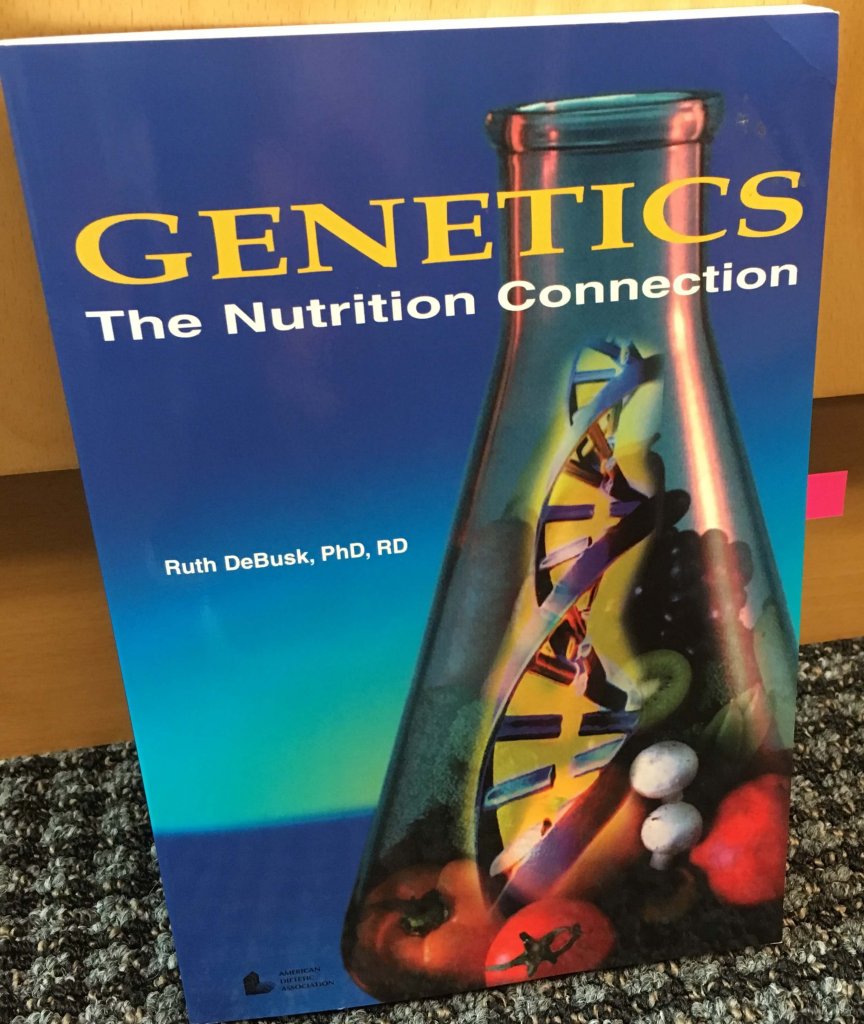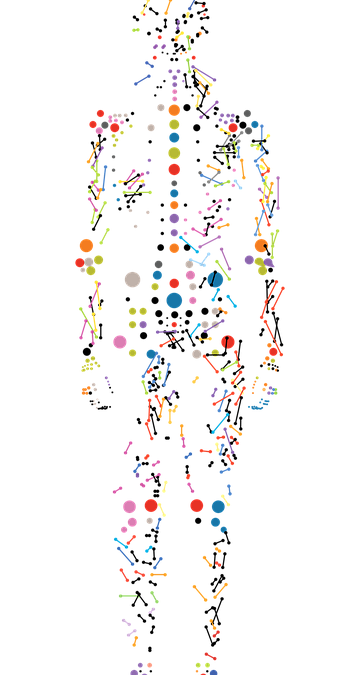Nutritional genomics is a broad term encompassing nutrigenetics, nutrigenomics, and nutritional epigenomics, all of which involve how nutrients and genes interact.
Identifying the effects of individual nutrients or an entire nutritional plan based on an individual’s genotype allows for a customized nutritional “prescription” targeting unique and specific health needs.
Nutrigenomics [nutri-gen-O-mics] may be a term that’s new to you, but unless you’re steeped in the worlds of nutrition, genetics, the human genome and disease prevention, why wouldn’t it be?
I first learned of nutrigenomics in the early 2000’s when I attended a functional nutrition workshop led by Dr. Ruth DeBusk, RD; she introduced the concept of using nutrition to “switch” certain genes off and on.
I was completely blown away by what that could mean for the future of nutrition, disease management and prevention, and while I don’t actively practice functional nutrition, I have great respect for nutrition as medicine (you know this if you follow my work!), which all these years later continues to influence my writing, lectures and programs.

From my personal collection; purchased in 2007.
Consider this.
A simple DNA cheek swab reveals breast cancer genes that could be modified with targeted dietary advice. What if that advice were to simply eat an apple every day, because nutritional constituents identified in that apple were known to REDUCE or ELIMINATE that particular individual’s risk of developing breast cancer.
For someone else, the same cheek swab reveals that apples INCREASE the risk of developing breast cancer. Advice to avoid the apple and eat different fruit(s) identified to decrease risk would be life-changing.
Can you imagine?
What Is Nutritional Genomics?
Nutritional genomics, aka “nutrigenomics” is the study of how the effects of dietary and other lifestyle choices influence the function of living beings at the molecular, cellular, organismal, and population levels. The far-reaching potential for nutritional genomics is the prevention of diet-related disease, including breast cancer. (1)
What I love about nutrigenomics is the focus on wellness and prevention rather than the treatment of disease. While nutrigenomics is not yet mainstream, consumer awareness and demand combined with robust scientific evidence (the ability to replicate studies) is moving us toward the day when a prescription for a targeted eating plan will be as common as a prescription for penicillin.
In 2017 I attended “Nutrigenomics: Is It Ready for Prime Time?” presented by Ahmed El-Sohemy, PhD, adjunct professor in the Department of Nutritional Sciences at the University of Toronto, and the Canada Research Chair in Nutrigenomics.
Dr. El-Sohemy outlined a solid argument for why we should even bother to consider nutrition and genetics/genomics.
Quite simply, one nutritional protocol does not fit all.

Take caffeine, one example highlighted during the presentation. Depending on an individual’s genotype (the underlying genetic information encoded in a chromosome), caffeine can have an increased, decreased, or zero effect on health outcomes. If you’re someone who experiences elevated blood pressure or heart rate when you eat or drink anything containing caffeine, you probably want to know more about how to manage that.
Nutrigenomics; Current and Future Practice
Currently, dietitians provide breast cancer nutrition recommendations and nutritional guidance supported by research that, while impactful, isn’t always as targeted as we’d like. However, we can’t let enthusiasm for this exciting area of nutrition preclude evidence-based practices that protect the safety of our patients and clients.
As stated in the position paper of the Academy of Nutrition and Dietetics on nutritional genomics, “although the discipline of nutritional genomics is a promising approach to creating a diet specific to an individual’s genotype and positively influencing the development of chronic disease, the science is still developing.” (2)
Stay tuned for more – the world of nutrigenomics is just getting started!
When you’re newly diagnosed, it’s completely normal to feel overwhelmed with trying to choose the best foods to eat and those to avoid. The questions and concerns you have about the types of food you should put into your body can undermine your confidence in making choices.
For help from a qualified nutrition professional in sorting it all out, CLICK HERE.
Click here and get my GEAR UP FOR TREATMENT Nutrition & Fitness JUMPSTART worksheet.
SOURCES
- Nutritional genomics in practice: Where do we begin?
- Position of the Academy of Nutrition and Dietetics: Nutritional Genomics

